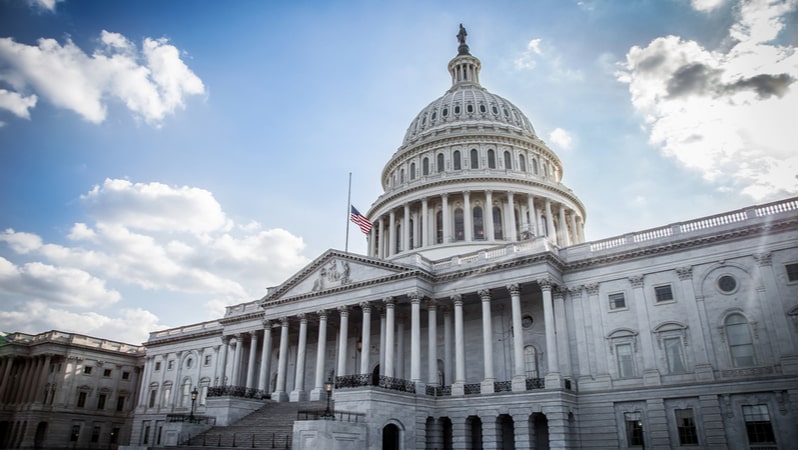
Legislation introduced in the House on Wednesday aims to create a cybersecurity training program that will provide Federal scholarship support in exchange for two years of service with governments at all levels in cybersecurity roles.
The Providing Individuals Various Opportunities for Technical Training (PIVOTT) to Build a Skills-Based Cyber Workforce Act of 2024, or the Cyber PIVOTT Act, was introduced by House Homeland Security Chairman Mark Green, R-Tenn., on Sept. 24.
The legislation would establish a new full-scholarship program for two-year degrees in cybersecurity fields at community colleges and technical schools.
Participants who got through those programs would then work in Federal, state, local, tribal or territorial governments for two years after their graduation. Those who complete a four-year degree after the completion of their two-year college education could choose to defer their government service, according to bill language.
“Today, I am proud to introduce legislation to ensure all levels of government have the best and brightest cyber professionals on the frontlines of America’s cyber border,” said Rep. Green in a statement. “As threats to our critical infrastructure and civilian networks from Beijing, Tehran, and Moscow grow and AI lowers the barrier to entry for attacks, our worsening cyber workforce gap has created a dangerous homeland security threat.”
The program would target entry-level cyber talent and those who would like to “pivot” their careers, according to the congressman’s office.
The legislation seeks to take advantage of partnerships already established by the Cybersecurity and Infrastructure Security Agency (CISA) with industry, and would be seen as a companion to other cyber workforce programs like the Cyber Corps.
The program would be available to 250 students in its first year and later expand up to 10,000 students.
Taking a page from Reserve Officer Training Corps (ROTC) programs for the military, the legislation would implement new cyber workforce pipelines by expediting “service at any level” including positions requiring security clearances. It also would provide service exemptions for military members “who would like to build cyber skills but have already served their country.”
“ROTC programs offer a valuable pathway for students who don’t have the opportunity to attend a military academy to begin a lifetime of dedicated military service,” said Rep. Green. “Likewise, the ‘Cyber PIVOTT Act’ opens doors for professionals seeking to ‘pivot’ to the specialty of cybersecurity without a traditional four-year degree – rewarding and supporting those who use their valuable skills to protect government networks and ensuring they’re ready to work on day one.”
Participants in the program would be required to complete at least one of four skills-based tasks every two years including laboratory work, and competitions including hackathons, virtual programming, table-top exercises, industry training workshops, and exercises in a box.
Students would also be required to hold a “cyber or cyber-relevant” internship with “appropriate entities” as part of the program.
Co-sponsors of the legislation include Reps. Carlos Gimenez, R-Fla., and Mike Ezell, R-Miss.
